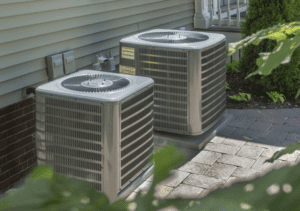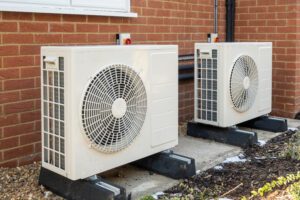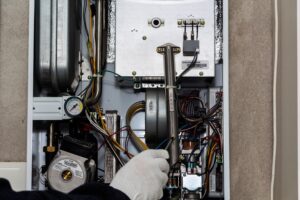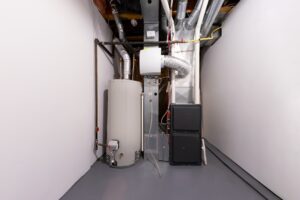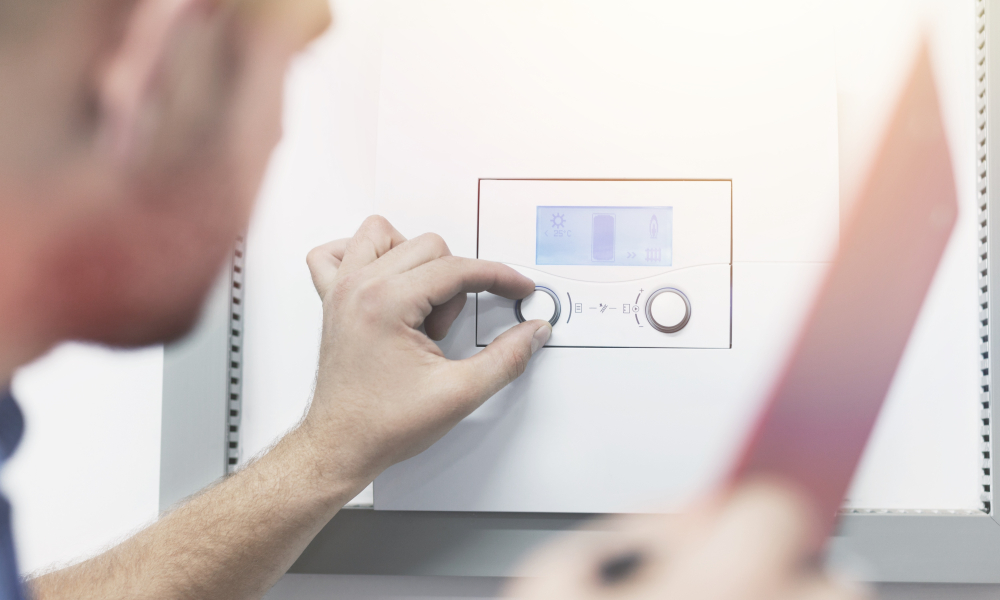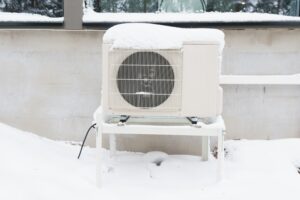Life without a hot water heater would be a challenge. No more hot showers or baths. No more hot water for dishes or laundry. You would even have to wash your hands with cold water. These are the main reasons that people don’t go without an operational water heater for long.
In most homes, you will find a large hot water tank in the basement or utility room that holds between 40 and 120 gallons of water—depending on the size of the storage tank. However, there is an option that takes up less space but provides an endless amount of hot water.
These are called tankless water heaters. Tankless systems aren’t as common as the storage tank style that most people are used to, but should you be considering a tankless instead?
Benefits of a Tankless Water Heater
Tankless water heaters, also called on-demand water heaters, are around 22 percent more energy efficient on average than a gas-fired storage tank model, according to Consumer Reports. Energy efficiency isn’t the only upside to a tankless water heater, however. Here are a few of the main benefits of a tankless system.
- An endless supply of hot water is available with a tankless system. An entire family can shower consecutively without depleting the supply of hot water.
- Tankless systems offer homeowners a more compact water heater. If you have limited space in your home, a tankless system might free-up some extra space.
- Less wasted energy and water lead to long-term savings. A tank-style water heater is continuously heating water, so it is ready when you request it, but a tankless system only heats water when it is needed. The U.S. Department of Energy states that tankless systems can be between 8 percent and 50 percent more energy-efficient than their tank-style counterparts.
- Tankless water heaters pose no risk of the tank exploding. While tanked hot water systems have temperature and pressure relief valves to prevent explosions, minerals and sediment can clog the valve and prevent it from functioning properly. This can lead to pressure build-up that could cause the tank to explode.
- Tankless systems are safer than the traditional tank-style water heaters because they allow you to better control the temperature of the water, which can prevent burns from the hot water.
- With a tankless system, there is a lower risk of leaks than with a tank. Tank-style heaters can suffer from mineral build-up caused by hard water. Over time, this leads to corrosion and leaks that can cause flooding in your home.
- The 20-year or more life expectancy of a tankless system is double that of the average tank-style system. Comparing the lifespan of 20 years to an average of eight to 12 years for a tank-style system, many homeowners realize that they will save a lot of money by switching to a tankless system.
Disadvantages of a Tankless Water Heater
While there are numerous benefits to installing a tankless water heater, there are also some disadvantages to consider. Let’s take a look:
- Some systems can’t supply enough hot water for simultaneous hot water needs because they have a maximum flow rate that prevents excessive use of hot water at one time.
- Inconsistent heating can be common, especially when more than one appliance or tap is using the hot water. While you have an endless supply of hot water, simultaneous use isn’t recommended, because the tankless system can’t keep up. You will want to purchase a tankless system with an average flow rate that is capable of keeping up with your needs.
- Tankless systems need to be vented outdoors with either a direct vent or a conventional exhaust flue, which could require additional installation needs.
- Tankless systems take a little extra time to deliver hot water where requested because they are heating the water as it flows the pipes. You have to wait for the cool water to be flushed out of your pipes before you get any hot water.
- Higher upfront costs for both the unit and installation scare many people away from tankless water heaters. While the average 40- to 50-gallon tank water heater costs around $900, the average cost of a tankless system is around $3,000. The higher installation costs are generally associated with special wiring needs.
- With a tankless system, no hot water will be available during a power outage. With a tank-style system, the hot water stored in the system can stay hot for several days, but you can’t produce new hot water. Since a tankless system is always producing more hot water, you won’t have any hot water when the power goes out.
Should I Choose a Tankless System?
That really depends on the wants and needs of your household. After looking at the pros and cons of tankless hot water heaters, you should have a better understanding of whether or not a tankless system is right for your family. After weighing the pros and cons, you might want to discuss your needs with a professional plumber who can help you determine which type of water heater will give you everything that you need.
If you are considering a water heater, the plumbers at Cates Heating and Cooling can talk to you about your options. Give us a call today at 913-888-4470 (Kansas) and 816-944-1844 (Missouri).






